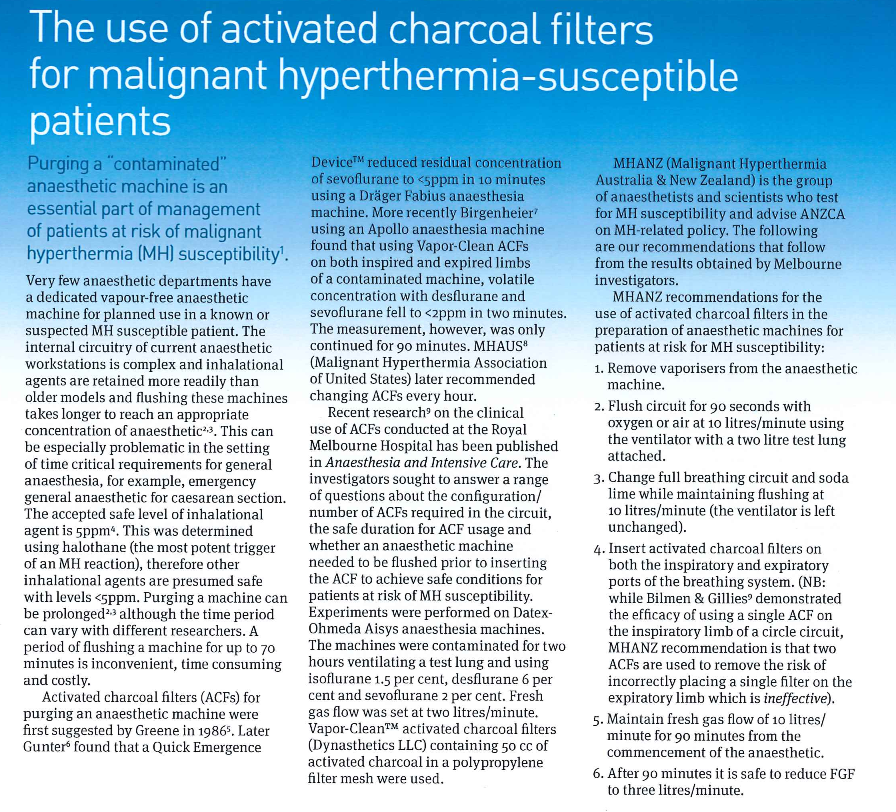Charcoal Filters
ANZCA Bulletin March 2014
Activated Charcoal Filters MHANZ statement
For information on the use of activated charcoal filters for malignant hyperthermia-susceptible patients read this article.

Malignant Hyperthermia Action Plan
This information is for the use of persons caring for potentially malignant hyperthermia susceptible individuals in a non-medical setting. (For example; child care, school or workplace).
Malignant Hyperthermia (malignant hyperpyrexia, MH) is a syndrome that can occur in susceptible people when they are given certain drugs only used in general anaesthetics and emergency medicine.
It occurs very rarely and is genetically inherited (it runs in the family). It is not transmissible.
It has little impact on a person’s health unless they are exposed to general anaesthetic agents – specifically all volatile anaesthetic agents (only administered in the hospital) and suxamethonium (only administered by trained paramedics and anaesthetic doctors).
Very rarely, people with MH can exhibit signs of exercise intolerance (with extreme exercise) or heat intolerance (with extreme heat) and these should be avoided if they cause distress.
Recommendations from the Malignant Hyperthermia Association of the United States and supported by MHANZ include:
- Any MHS (MH-susceptible) patient who experiences sudden collapse in association with muscle rigidity and hyperthermia should be immediately treated for MH. This includes immediate cooling measures, and transport to the nearest medical facility where the drug dantrolene may be used. Succinylcholine should be avoided during resuscitation and management.
- MHS patients or their relatives who have not experienced adverse effects of heat and exercise should not restrict their activity. They should carry identification of their susceptibility and inform those responsible for their care of their MH status.
- MHS patients who have experienced adverse effects of heat or exercise should restrict their activity based on their own experience.
If a person with MH is involved in an accident that requires emergency treatment, all paramedical and medical personnel should be informed of their MH status.
In summary:
There are no specific actions required for most malignant hyperthermia susceptible persons. If the person indicates that they are susceptible to adverse effects of heat or exercise, precautions should be taken as above.